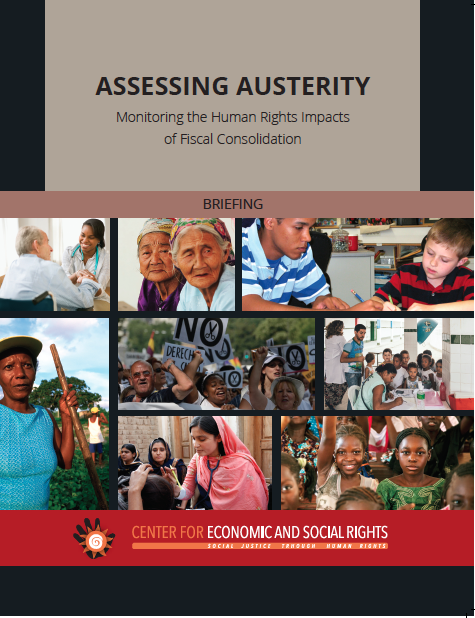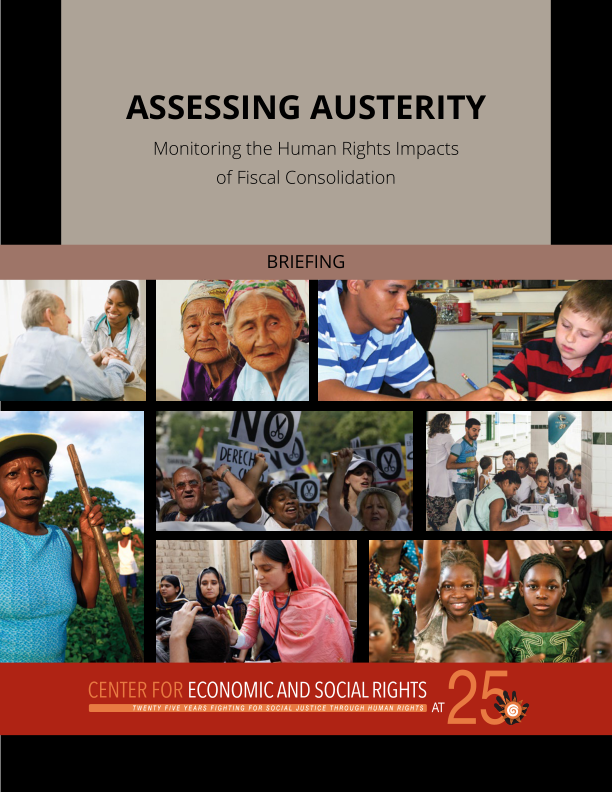In the decade since the 2008 global economic crisis, fiscal austerity has become the new normal. In the name of fiscal discipline, governments in more than two-thirds of countries throughout the world have enacted drastic austerity measures like severe public expenditure cuts, regressive tax changes, and labor market and pension reforms, effectively disinvesting in human rights.
Draconian fiscal adjustments have undermined human rights of all types—from the rights to education, food, health and housing to the rights to decent work, fair wages and social security; and from freedom of expression to the rights to life and personal security. In the process, these unnecessary and unjustified policies have also aggravated disparities such as those of income, gender, race, age, disability and migration status.
Assessing Austerity: Monitoring the human rights impacts of fiscal consolidation argues that ten years on from the global financial crisis, another lost decade for human rights due to fiscal consolidation is impermissible. The briefing outlines practical guidance for policymakers, oversight bodies, civil society actors and others seeking to assess and address the foreseeable human rights consequences of austerity. It offers an adaptable methodological framework to inform the content and process of conducting effective Human Rights Impact Assessments (HRIAs) of fiscal consolidation measures. Further, the briefing demonstrates why a human rights assessment of austerity is at once necessary, feasible and ultimately quite valuable in advancing a suite of alternative policies that would prevent harmful forms of fiscal consolidation in the future.

